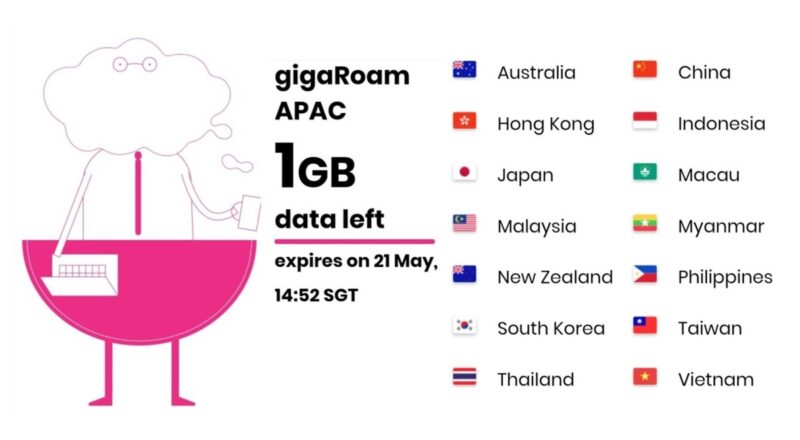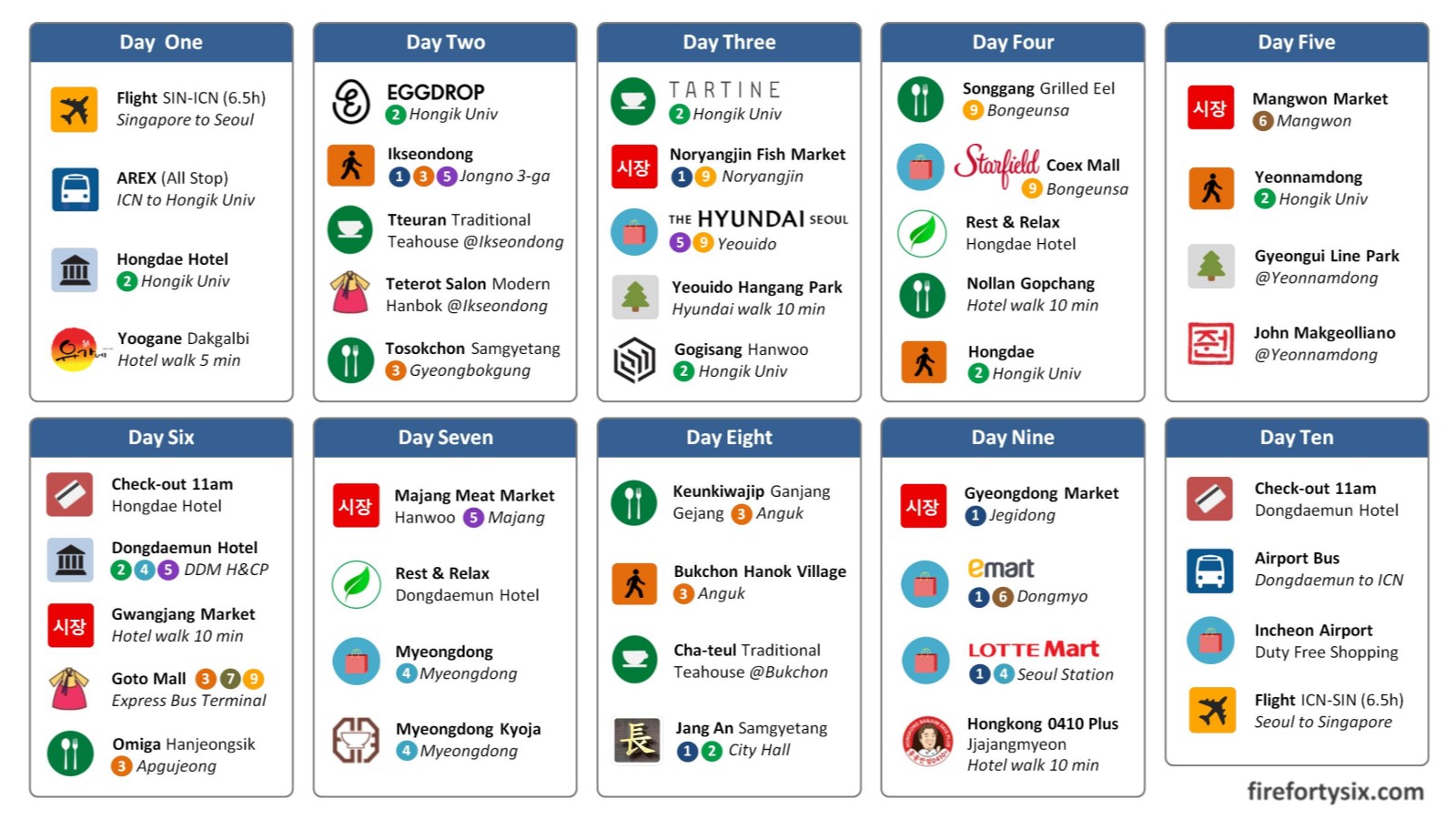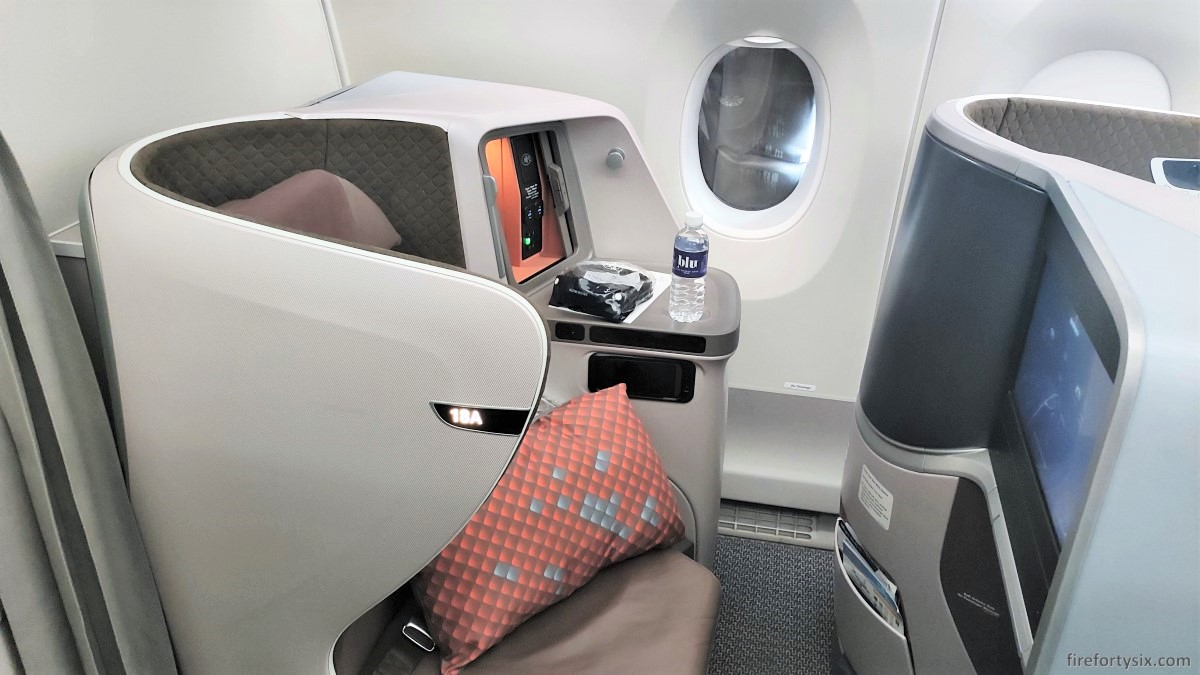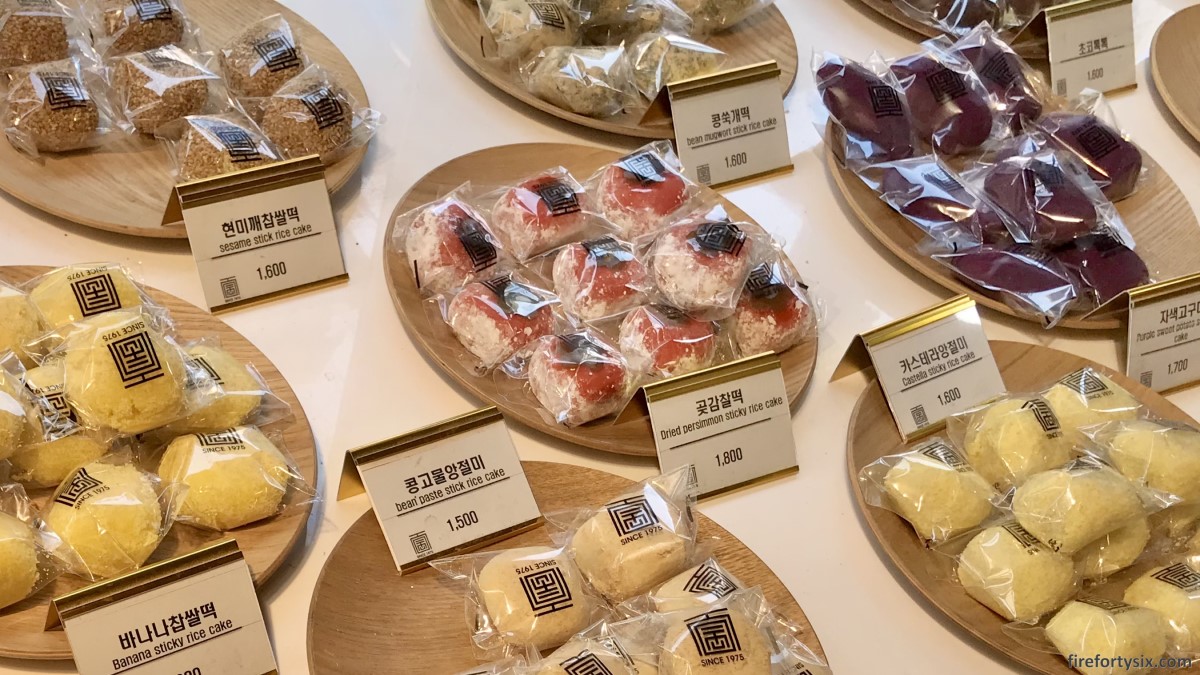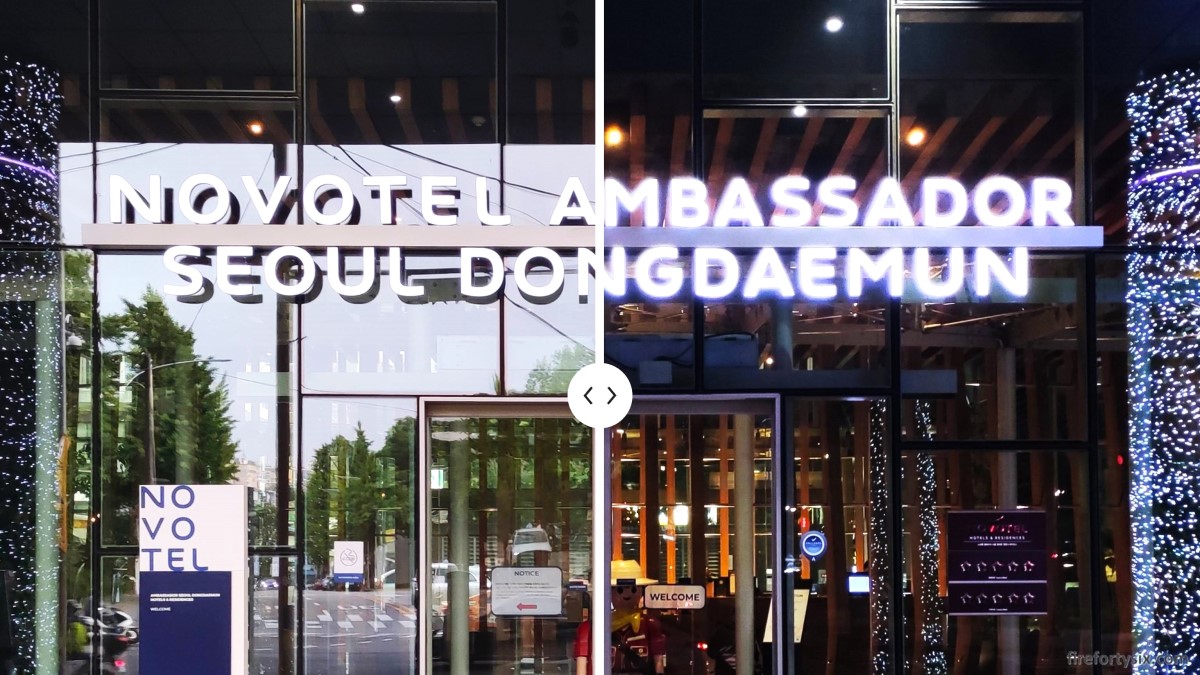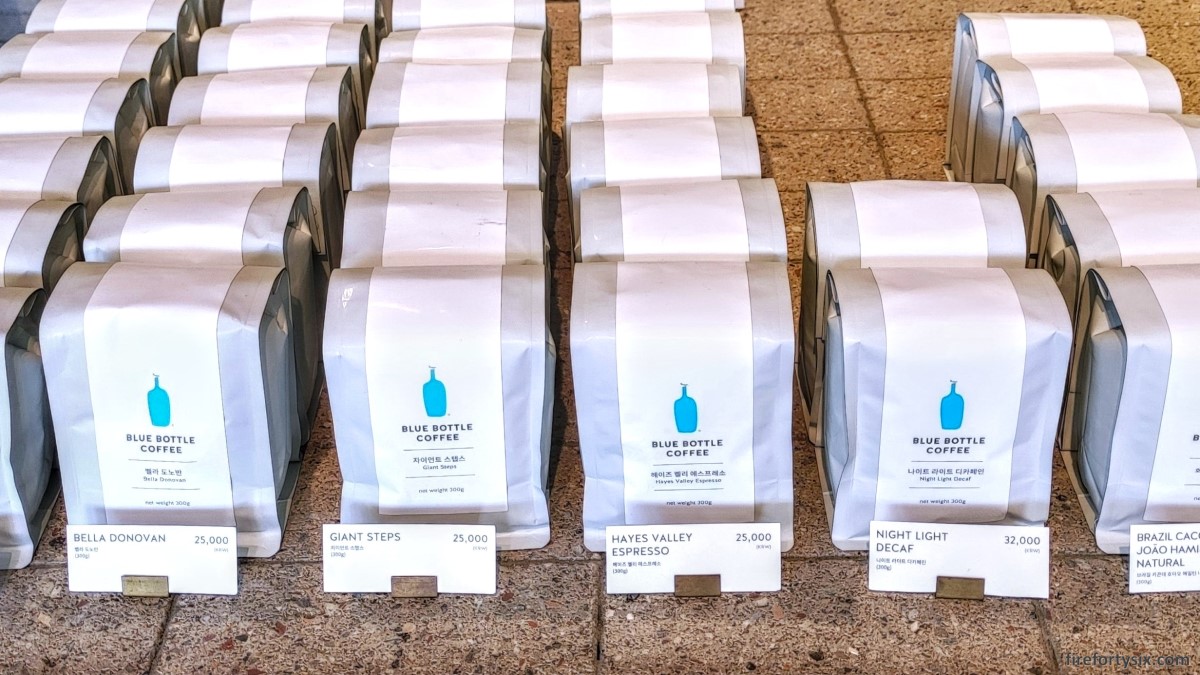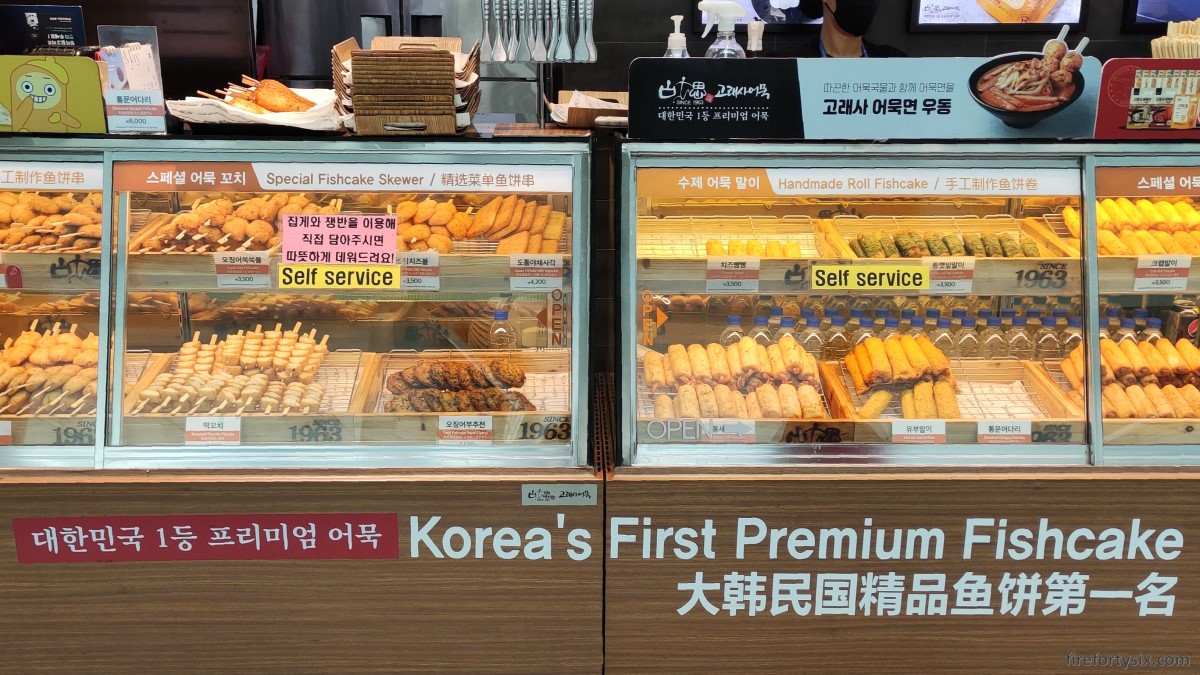One our our travel essentials is reliable and affordable mobile internet access. It’s arguably the most important thing to have, allowing us easy access to communication, navigation and entertainment.
It used to mean having to hunt down local data SIM cards in the airport, immediately after landing and clearing customs. Which was my routine when I used to travel regularly for work. So much so that I knew exactly where to go and which plan to buy, across all the airports that I frequented.
Of course, there was always the choice of activating data roaming packages offered by local telcos. But they were always exorbitantly priced, and scary news about accidental thousand dollar charges would occasionally surface.
I had always wondered why they didn’t price it more reasonably and try to capture the revenue lost to foreign telcos. I’m sure they still received a cut, but why not eat the whole cake?
Personally, I would have welcomed the convenience of having data access overseas just by switching on my phone, even if it was slightly more expensive.
My wish was finally fulfilled during our recent trip to Seoul, when we had the chance to try out the data roaming package offered by my current telco, StarHub Giga.
They had two different packages: gigaRoam APAC covering 14 Asian countries, and gigaRoam ROTW covering 34 global destinations. The Wife and I both signed up for the APAC version and paid S$5.00 each, a reasonable price for 1GB of data valid for 5 days.
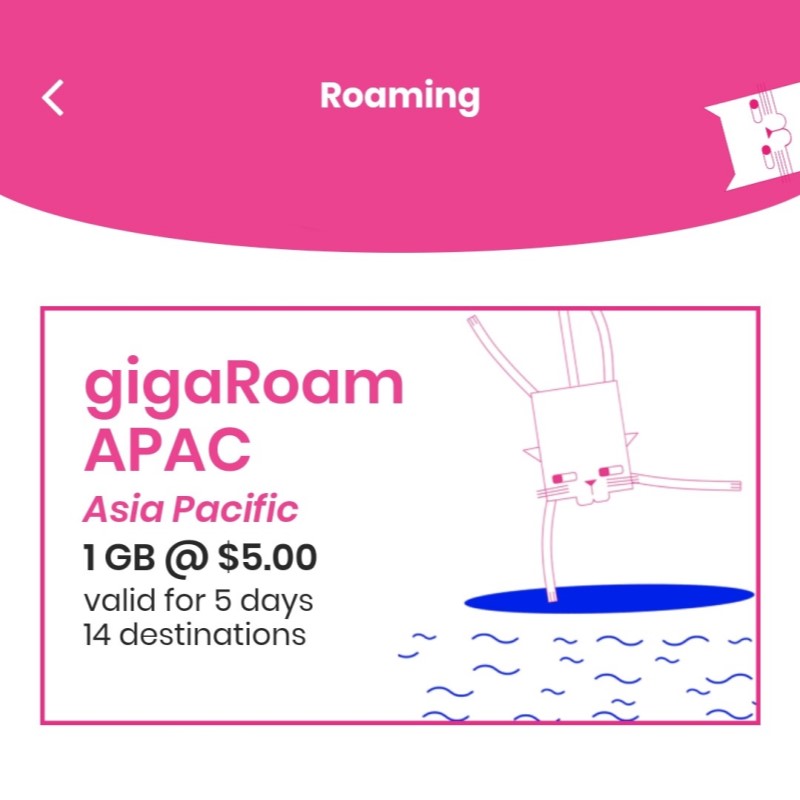
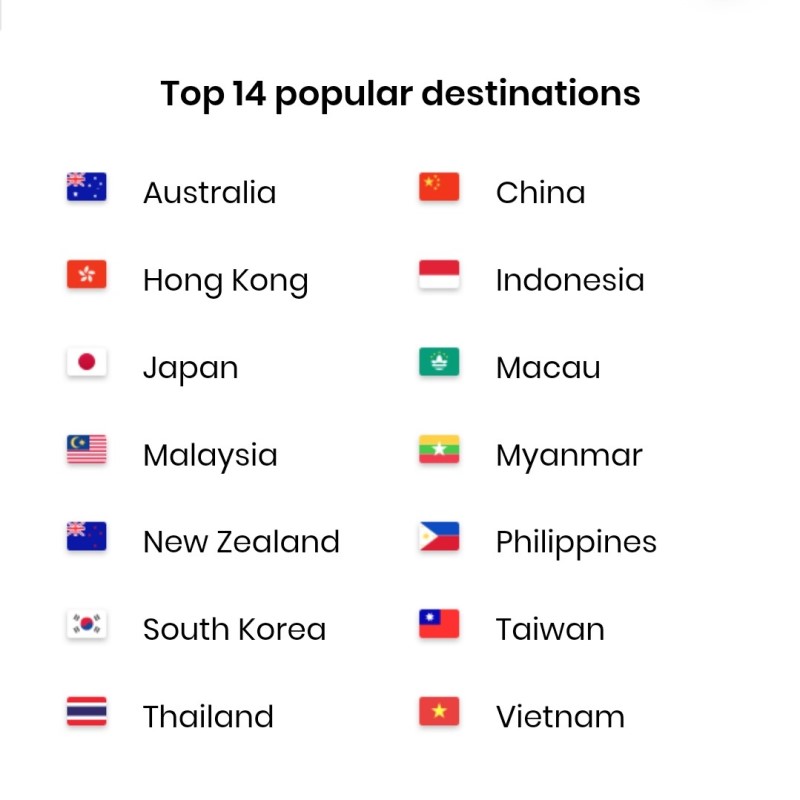
Given that our daily mobile data usage in Singapore rarely exceeds 200MB, the quota offered seemed more than sufficient. Especially since any data-intensive usage could be deferred until we had free internet access in our hotel.
To cover the entire duration of our 10 day trip, we just had to remember to sign up for another 5 days upon reaching the halfway mark.
Initial activation was done automatically after we switched on our phones in Seoul. After it successfully found and connected to a local telco (SK Telecom), we received SMS confirmation that our data roaming packages were active.
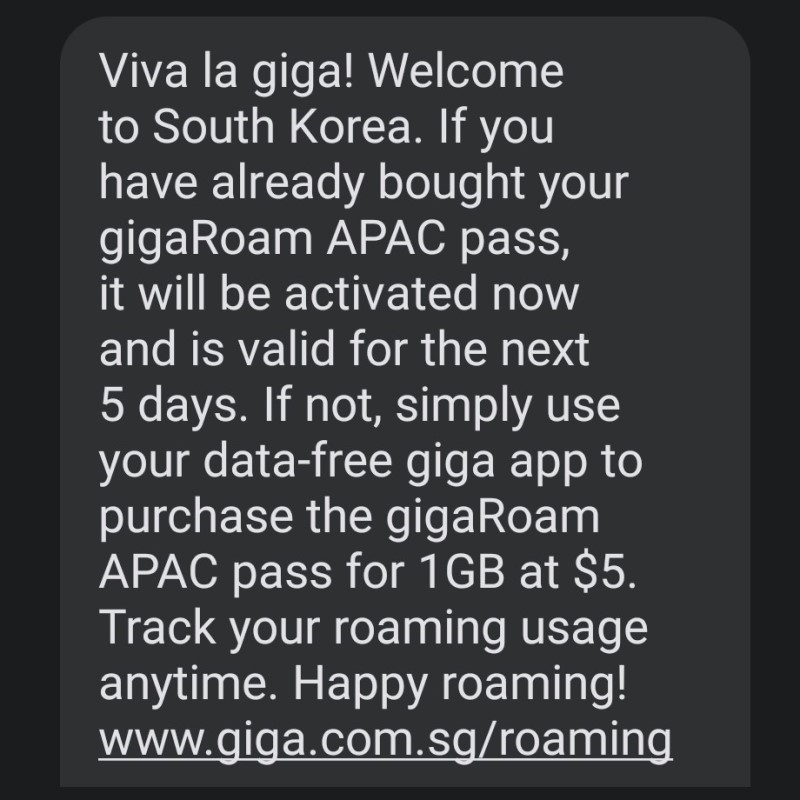
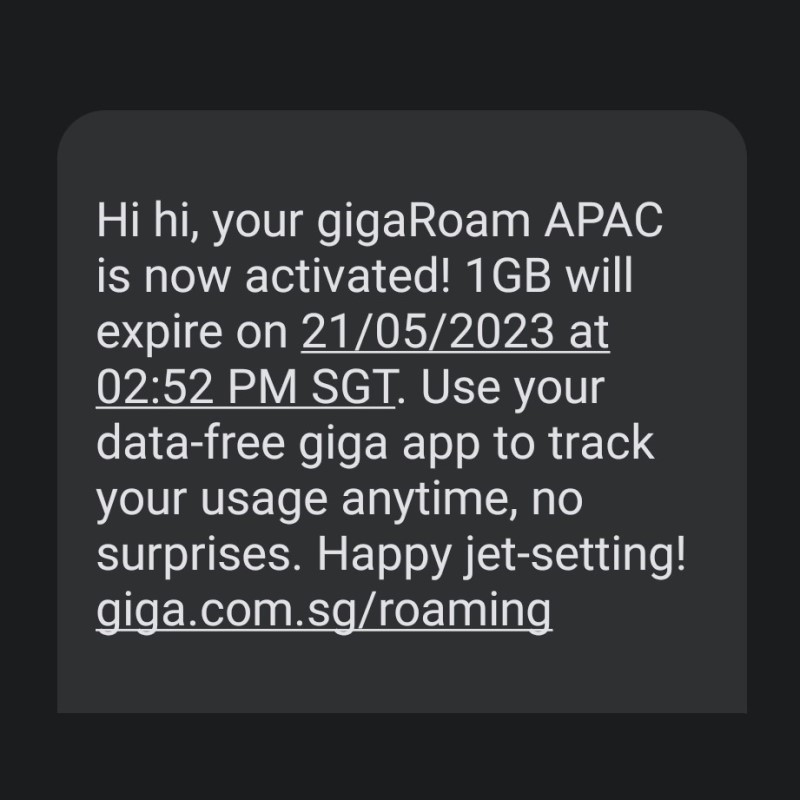
This was confirmed by the Giga app, which clearly showed how much data I had left, as well as the specific expiry date and time. We checked our usage at the end of every day, and averaged around 150MB daily.
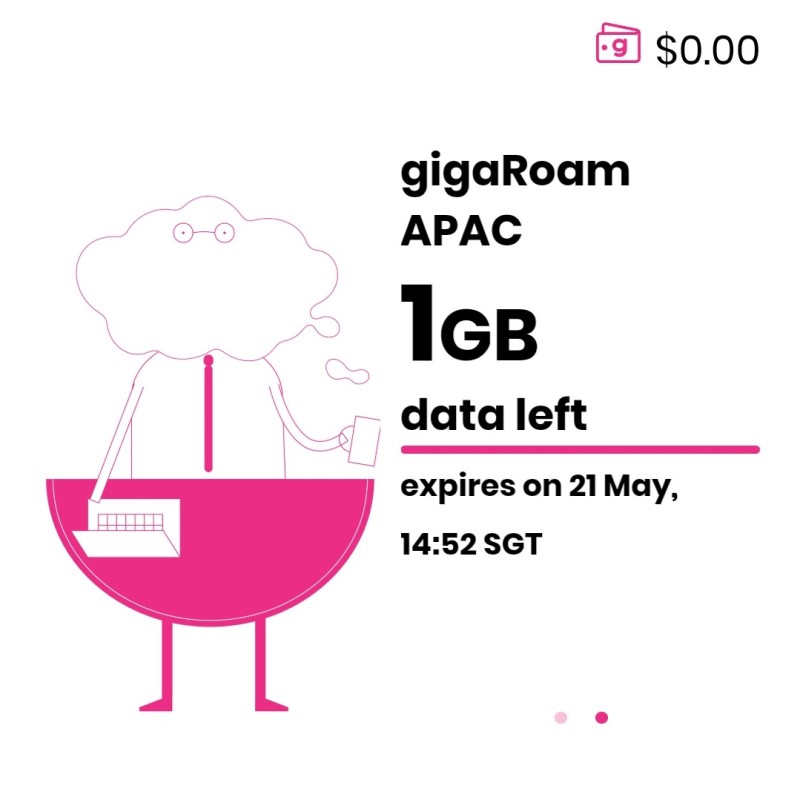
In the morning of Day 5, we received a timely SMS reminding us of the imminent expiry of our data package in six hours time. I still had about 300MB left and was curious if it would be rolled over when I activated a new package.
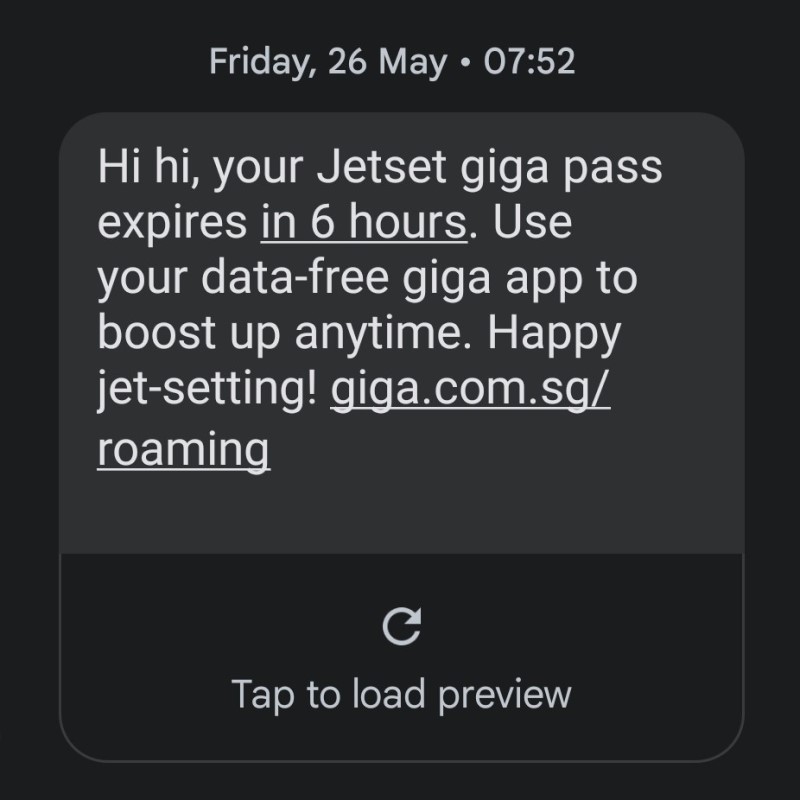
I found the terms and conditions on the Giga website, and clause 3.13.6 indicated that it would indeed be rolled over. After paying for the extension and checking the Giga app, I saw that the leftover 300MB did actually carry across.
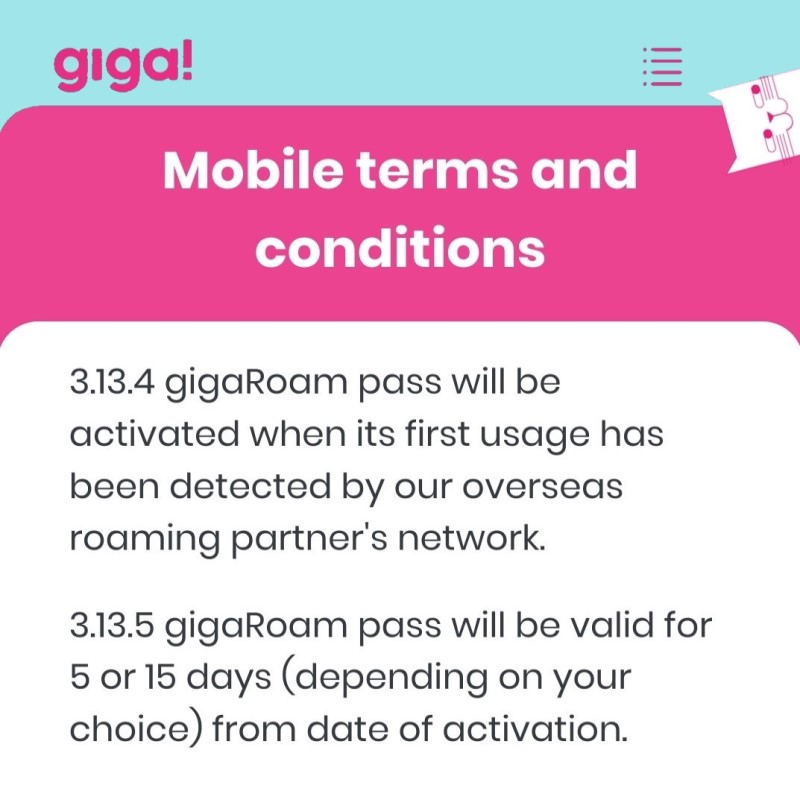
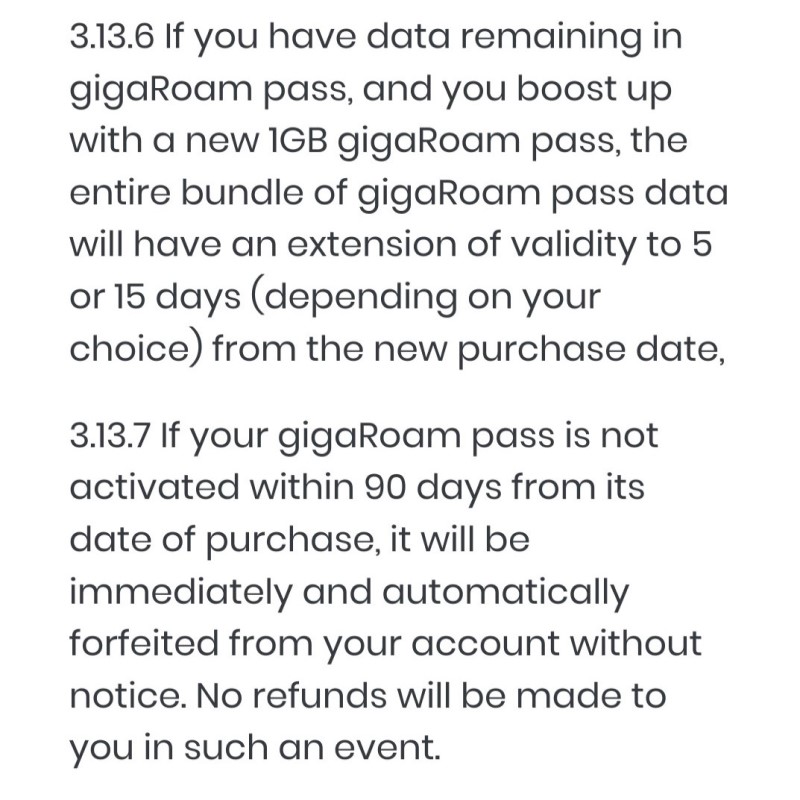
However, the same clause 3.13.6 also stated that the “…[entire bundle of data] will have an extension of validity [to 5 days] from the new purchase date.” Which I think is an important point to note, and implies that you should only buy an extension close to expiry.
Otherwise, the new 5 day countdown would start prematurely. For example, if you bought an extension package on Day 3, it would expire on Day 8 and not Day 10, which you might have assumed.

I felt that a more customer-friendly move would have been to start counting only after the end of the initial 5 days. Making it a full 10 day duration, regardless of when the extension was bought. But it is what it is.
Interestingly enough, I recently checked the online terms and conditions and seems like the entire clause 3.13.6 has been deleted. Making both the data rollover feature and expiry extension deadline ambiguous. I’m not sure why they did that, but it’s something to be aware of.
Regardless of this technicality, we were happy with the gigaRoam APAC service and we had no issues with mobile data access throughout our entire trip in Seoul.
It was easy to buy, seamless to activate and convenient to extend. Saving us the hassle of finding, buying and swapping SIM cards at the airport. It may not be the cheapest option for data roaming out there right now, but it’s good enough for us.
We’ll be using it for our upcoming trip to Japan, and I’m cautiously optimistic that it will continue to work like a charm there as well. (2024-03-28 Update): We just got back from our Japan trip, and happy to report that it worked just as well in Osaka, Kyoto and Uji.
Note: If you’re new to giga and plan to sign up with them, you can consider keying in my referral code nhkmqi during checkout. You’ll get a S$2.00 discount and I’ll earn a S$2.00 credit. But if you have family or friends who are already giga customers, please use their referral code instead.
